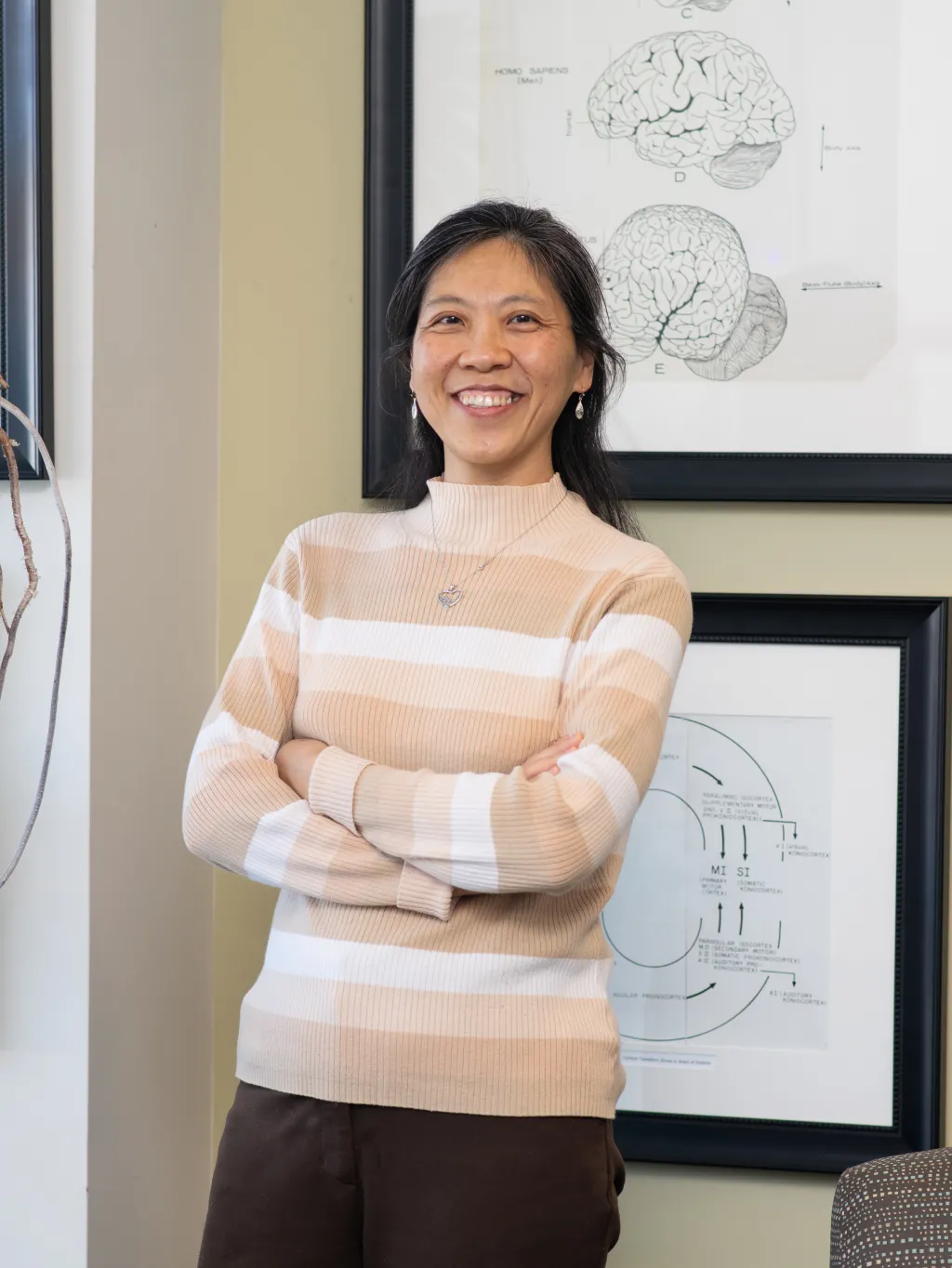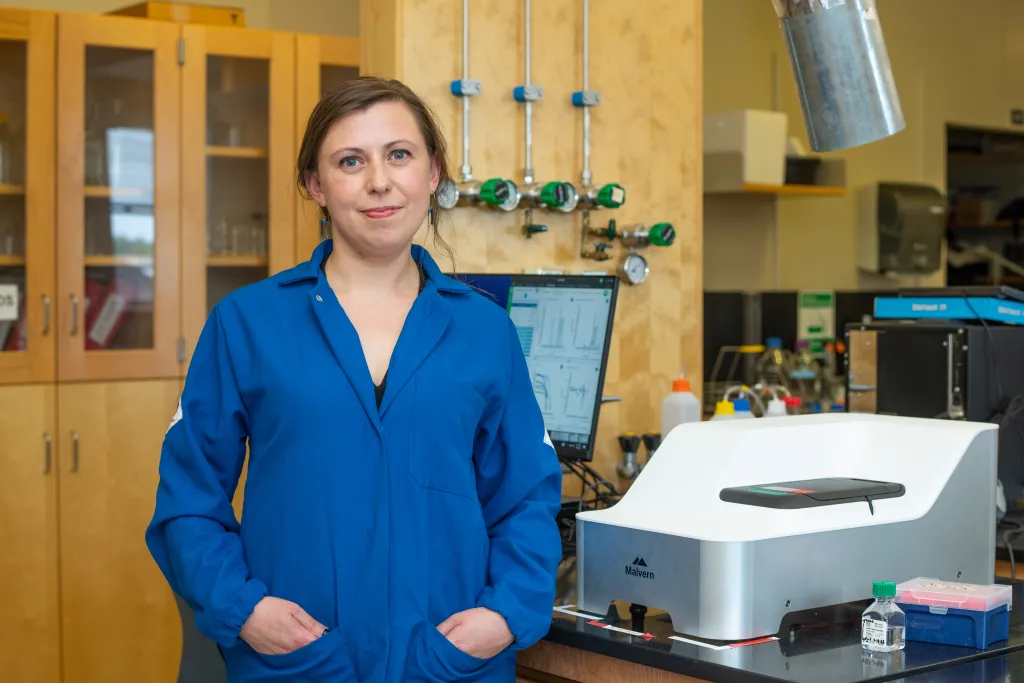The University of New England further cemented its status as a leader in Maine’s biomedical research sphere with the January announcement of a $10.8 million grant to support establishment of the Center for Cell Signaling Research (CCSR), a National of Institutes of Health (NIH)-funded Center of Biomedical Research Excellence (COBRE).
This is the second COBRE granted to UNE, building off the success of the Center for Pain Research established in 2012. With this new award, UNE becomes the only institution of higher learning in Maine to boast two of the NIH-funded research centers, further solidifying the University’s role as a biomedical research engine for the state of Maine.
Reflecting the University’s mission to better the health of people and communities, the CCSR will explore the mechanisms governing cellular communication and their ability to influence human disease, paving the way for novel therapeutic interventions to address some of the most pressing health issues of our time, including dementia, diabetes, osteoporosis, and heart disease.
The CCSR will support the work of four biomedical research faculty — Eva Rose Balog, Ph.D., Kathleen Becker, Ph.D., Harry Filippakis, Ph.D., and Luis Queme Cobar, M.D., Ph.D. — and will fund the development of an In Vitro Analytical Core (IVAC) facility that will provide instrumentation and cell line culture abilities to support their vital research.
Here, we introduce you to the faculty and leadership that is bringing this groundbreaking COBRE research to life.






